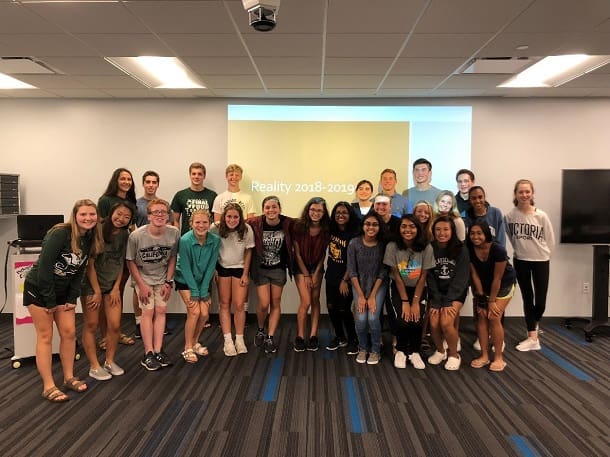
Tell me about your community and the communities that your coalition serves – its population and unique features. When was the coalition formed?
The DuPage County Prevention Leadership Team (PLT), came together in 2011 following a county-wide health assessment led by the DuPage County Health Department. The assessment indicated substance use was one of the top five issues impacting the health of DuPage residents. This was a call to action for key stakeholders in the community that wanted to come together and tackle the issue from a prevention perspective, thus establishing the PLT. The PLT serves all of DuPage County, IL. DuPage is a collar county of Chicago and is home to nearly one million residents, a quarter of whom are under the age of 18. With six major hospitals, 44 school districts and 39 municipalities, the PLT must be strategic in how we set priorities and spend grant money to make long-lasting, effective environmental change that will impact the population.
What unique issues is your coalition facing?
DuPage is facing an e-cigarette epidemic among our youth. Data indicates that past 30-day use rates among middle and high school students nearly tripled between 2016 and 2018, replacing marijuana with the number two most reported substance being used by young people. This trend almost seemed to happen overnight, with schools and parents not fully knowing how to respond. Although tobacco/e-cigarettes were not previously a focus of the coalition, the PLT couldn’t ignore the overwhelming use rates among youth. The coalition began working to provide education to schools, youth, and parents on the dangers of e-cigarette devices, as well as working on policy change that would increase the legal age to purchase these products from 18 to 21 years old.
What activity or program is your coalition most proud of and/or what activity would you like us to spotlight?
“Our advocacy work on raising the legal age to purchase tobacco products to 21 years old is something the coalition and especially our youth coalition are very proud of,” said Community Initiatives Coordinator Jordan Esser. “We worked with our youth coalition to educate them on the dangers of tobacco and e-cigarette use and assisted them with an educational presentation they could take to townhalls and village boards. The youth spent months attending these meetings all over DuPage, in the hopes of encouraging decision makers to understand how raising the legal age to purchase these products to 21 would be a huge protective factor in preventing youth in middle and high school from starting these products at a young age. The youth proved effective in their advocacy efforts and were successful in changing these laws in seven municipalities throughout DuPage!”
How did you get there, and what are your outcomes? (Be as specific as possible in terms of strategies that you used)
“Raising the legal age to purchase tobacco products throughout DuPage would not have been possible without our youth coalition,” said Esser. “A lot of time was spent providing education to our youth coalition about e-cigarette use data throughout DuPage, the dangers of use, and how to advocate for change in the community by having them practice mock debates at youth coalition meetings. We assisted with putting together presentations and getting youth to attend townhalls where they made their case. Sometimes youth would have to attend a townhall meeting in one city multiple times, over a span of months, before anything changed. Other times, no change was successful, but our youth coalition is resilient and took the wins along with the losses very well. They are currently still working on these advocacy efforts and our community and even wrote letter to the Governor of Illinois to encourage a statewide policy change.”
What advice would you give to other coalitions that may be addressing some of the same issues?
“Be flexible,” said Esser. “Although it is important to stick to your action plan and the strategies your coalition has set, it is also important to allow your coalition to be flexible enough to respond to emerging trends and threats that may pop up in your community. In our case, e-cigarettes were not even on our radar almost a year ago, but the data could not be ignored, and we had to act.”
What did you learn at CADCA’s Graduate Coalition Academy (GCA) that you will be taking home to your coalition?
“The GCA was an incredible experience and proved there is always more to learn,” said Esser. “One of the main things we will be taking back to our coalition is how to establish strong local conditions and how to write an effective action plan to address those local conditions. In a community the size of DuPage, data collection can be daunting. But the GCA brought some clarity and provided great ideas on how to be creative when it comes to data collection and strategic planning. We are looking forward to week two of the GCA!”


